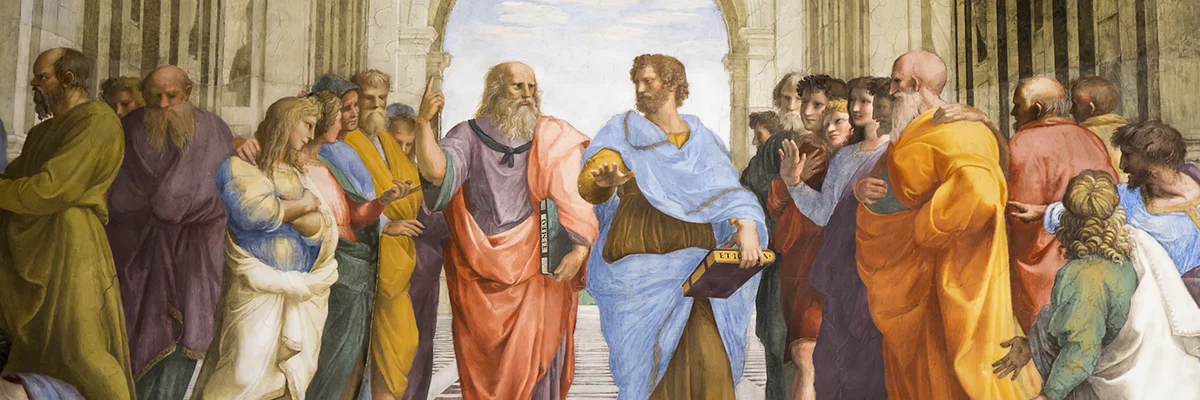
Some books are entertainment. Some are information. A very small few are dynamite.
They don’t just add to what you know; they change how you know it. They are philosophy books that change worldviews by locating the hidden assumptions you live your life by the very foundations of your “common sense” and putting a metaphorical crowbar beneath them.
This isn’t an academic list. It’s a tour of nine distinct detonations for the human mind, each one targeting a different part of the reality you take for granted. These books that make you think are not just reading material; they are intellectual events.
The Question of Effort: “Tao Te Ching” (Laozi, c. 400 BCE)

The entire Western worldview is built on striving. We push, we hustle, we control, we try. This slim, poetic volume suggests this is the very source of our anxiety. It introduces the “Tao,” the natural, effortless, flowing order of the universe. The “Tao” cannot be defined or aimed at. The core concept is “Wu Wei,” or “effortless action.” It’s not “doing nothing”; it’s the spontaneous, perfect action of a master craftsman who is “in the zone.” The book argues that all our problems come from imposing our rigid human plans on a fluid reality. It’s a profound relief, suggesting that true strength lies in flexibility and true success in letting go.
The specific ideas it delivers are paradoxical but powerful: action through non-action (Wu Wei), the strength of the “uncarved block” (simplicity before it is “spoiled” by intention), and the virtue of water (which is soft but can wear away rock). It is essential to read because it is the most potent antidote to the burnout, anxiety, and “hustle culture” of the modern world. It doesn’t offer a new way to win the game; it asks you to stop playing it and align yourself with a much larger, more natural one.
Legend says the author, Laozi, was a contemporary of Confucius who grew tired of court life and its rigid rituals. He was supposedly leaving civilization forever when a border guard begged him to write down his wisdom. The result was this text. Its influence is immeasurable, not just forming the basis of Taoism but also deeply influencing modern concepts like mindfulness, Zen Buddhism, and even environmentalist thought. We see its DNA every time someone advocates for “going with the flow” or seeking a more balanced, less forced way of living.
The Question of Reality: “The Republic” (Plato, c. 375 BCE)
This is the book that implants the single most powerful “what if” in Western history. Through the Allegory of the Cave, Plato asks: What if your entire perceived reality is just flickering shadows on a cave wall? What if you are a prisoner who has never seen the “true” world of sunlight? “The Republic” is a quest for the definition of “justice,” but to find it, Plato shatters your faith in your own senses. He suggests a higher, truer, unchanging reality (the world of “Forms”) exists beyond our flawed perception. It’s the book that gives you permission to question the “real world” and wonder if it’s real at all

Its core ideas are the Theory of Forms (that a perfect, non-physical version of all things exists), the Tripartite Soul (our soul divided into reason, spirit, and appetite), and the “Philosopher-King” (the only just ruler is one who has “seen the light” and doesn’t actually want power). It is crucial to read because nearly every major political and metaphysical question the West has asked for 2,400 years What is justice? What is reality? Who should rule? starts here. It is the foundational text of Western thought.
Plato wrote this in a time of political turmoil, disillusioned with Athenian democracy after it corruptly executed his teacher, Socrates. His “ideal city” was a direct critique of the messy, emotional reality of his government. Its legacy is complex: it inspired utopian thinkers for centuries, but its rigid, anti-democratic, censorship-heavy structure also led 20th-century philosophers like Karl Popper to call it a blueprint for totalitarianism. From “The Matrix” to debates on forms of government, we are still living in Plato’s cave.
The Question of Character: “Nicomachean Ethics” (Aristotle, c. 340 BCE)

While his teacher Plato sent our heads into the clouds, Aristotle brings us crashing back to earth. This is one of the most practical philosophical texts ever written. His central question is, “What is the purpose of a human being?” He answers with “Eudaimonia,” a word often poorly translated as “happiness,” but which truly means “human flourishing.” This isn’t a passive feeling; it’s an activity. How do we achieve it? Through “Arete,” or virtue. And virtue, for Aristotle, isn’t a list of rules. It’s a habit. It is the “Golden Mean,” the perfect balance point between two extremes (e.g., courage is the mean between cowardice and recklessness).
This book provides an actionable framework for a good life. Its key ideas include Eudaimonia (flourishing as the ultimate goal), virtue as the Golden Mean (a habit cultivated between two vices), and phronesis (practical wisdom, the ability to know how to act in a specific situation). This is not a book about what to believe; it’s a manual for how to become. It’s essential because it changes your worldview about “goodness,” shifting it from a state of being to an act of constant, conscious practice.
Written as a collection of lecture notes (likely edited by his son, Nicomachus), this text was Aristotle’s guide for his students at the Lyceum in Athens. It’s essentially a manual for becoming an excellent, functional, and fulfilled member of society. After being lost to the West for centuries, it was reintroduced via Arab scholars and became the foundational ethical text for Christian thinkers like Thomas Aquinas. Today, it is the cornerstone of “Virtue Ethics,” a major branch of philosophy that has seen a massive resurgence as a modern alternative to rigid rule-based (Kantian) or outcome-based (Utilitarian) ethics.
The Question of Certainty: “Meditations on First Philosophy” (René Descartes, 1641)
This is where modern philosophy truly begins. This book is an act of intellectual demolition. Descartes, living in an age of scientific upheaval, decides to tear his entire belief system down to the studs. He will doubt everything his senses, his memories, even logic (what if an “evil demon” is tricking him?). He reaches a terrifying point of absolute uncertainty, where nothing is real. And then, he finds it: the one, single, unshakeable bedrock. In the very act of doubting, someone must be doing the doubting. “Cogito, erGsum.” (I think, therefore I am.)

The specific ideas are the Method of Doubt (a tool for radical critical thinking), the Cogito (the self as the first principle of knowledge), and Cartesian Dualism (the idea that the mind and body are two completely different substances). Reading this is essential because it is a “boot camp” for the modern mind. It forces you to stop accepting any belief on faith and to instead build your entire worldview, piece by piece, on a foundation of absolute, undeniable certainty. It invents the modern problem of the self.
Descartes published this at the dawn of the Scientific Revolution, a time when old truths from the Church were crumbling. He wanted to find a new, unshakeable foundation for knowledge that was as certain as mathematics. In doing so, he created the “mind-body problem” (how does the non-physical mind control the physical body?) that has haunted philosophy and neuroscience for 400 years. Every debate about artificial intelligence, consciousness, and what it means to be a “self” in a physical brain starts with Descartes’ radical split.
The Question of Society: “Leviathan” (Thomas Hobbes, 1651)

What happens when you put Descartes’ newly-proven “I” next to millions of other “I’s”? Hobbes gives a terrifying answer. Writing during the chaos of the English Civil War, he imagines a “state of nature” before government. This state, he argues, is a “war of all against all.” Life is “solitary, poor, nasty, brutish, and short.” To escape this hell, we rationally agree to a “social contract.” We give up all our freedoms to one all-powerful sovereign (the “Leviathan”) who, in exchange, gives us one thing: physical security.
The book’s core ideas are the brutal state of nature, the social contract (the rational basis for society), and the necessity of an absolute sovereign to prevent collapse into chaos. This book is vital because it shatters any romantic or divine justification for government. It argues that civilization is not a noble quest for “the good” but a cold, cynical, and practical bargain we make to avoid being murdered. It forces you to justify why we have a society at all.
Hobbes wrote this in exile in Paris, having fled the horrific violence of the English Civil War. He had seen firsthand what happens when a society collapses, and the book is a direct reaction to that trauma. It is a powerful, pessimistic argument for security over liberty. Its influence is the basis for modern “social contract theory” and political realism. Every time you hear a debate about giving up privacy for security, or the need for a “strong” leader in times of crisis, you are hearing the echo of Hobbes’s Leviathan.
The Question of Perception: “Critique of Pure Reason” (Immanuel Kant, 1781)
This is the Mount Everest of philosophy. Before Kant, thinkers argued about whether truth came from reason (like Descartes) or experience (like Hume). Kant performs a “Copican Revolution” by saying they are both wrong. He argues that the human mind is not a passive mirror that reflects the world. Instead, the mind actively structures reality. We are all born with mental “goggles” (like time, space, and causation) that we can never take off. You don’t “discover” time in the world; your brain imposes time on the world just so you can experience it.

This book’s ideas are the Categories of Understanding (the innate mental filters that shape reality) and the profound distinction between phenomena (the world as it appears to us) and noumena (the world “as it is in itself,” which we can never know). It is essential reading because it is the single most important pivot in modern thought. It shatters the worldview that you are a passive observer. Instead, Kant forces you to see your own mind as an active creator of the very reality you experience.
Kant, a famously regimented professor in Prussia, wrote this to solve the crisis of philosophy created by David Hume, who argued we can’t truly know anything (like causation) for certain. Kant’s solution was this book, a “Copernican Revolution” that puts the human subject, not the external object, at the center of knowledge. Its influence is impossible to overstate. It not only shaped all subsequent philosophy (from Hegel to Existentialism) but also laid the groundwork for modern psychology and cognitive science the study of the very “mental filters” he first proposed.
The Question of Meaning: “Thus Spoke Zarathustra” (Friedrich Nietzsche, 1883-1885)
This book is a declaration of war on 2,000 years of Western morality. Nietzsche, through his prophet Zarathustra, announces the most terrifying and liberating event in history: “God is dead.” He means the idea of God and the entire system of “life-denying” morality built upon it has lost its power. We are now untethered. This is a catastrophe, but also a glorious opportunity. We are finally free to stop being “sheep” and become creators of our own values. The goal is the “Übermensch” (Overman), a human who affirms life so completely.

The central ideas are the Übermensch (Overman) as the goal for humanity, the Will to Power (the fundamental drive to create and overcome), and Eternal Recurrence (the ultimate test: would you be willing to live your exact life, with all its pain and joy, on repeat forever?). This poetic, prophetic book is a vital, terrifying, and exhilarating challenge. It shatters the worldview of inherited morality and forces you to ask: Are my values my own? And am I living a life I would be proud to live again, and again?
Nietzsche wrote this as a philosophical novel after a series of intense personal failures, including a devastating rejection by the woman he loved, Lou Salomé. He saw it as his masterpiece, a book of “affirmation” born from pain. Its legacy is tragically complicated. While it inspired countless artists, writers, and thinkers, its concepts (especially the “Übermensch” and “Will to Power”) were grotesquely twisted by his sister and later co-opted by the Nazis. Reading the book for yourself reclaims it as a profound text about individual self-creation, not-fascist domination.
The Question of Freedom: “Being and Nothingness” (Jean-Paul Sartre, 1943)

Sartre takes Nietzsche’s “death of God” and builds a complete system around the consequences. This is the bible of existentialism. His core idea is “existence precedes essence.” A paperknife is designed (essence) and then built (existence). But humans, with no designer, are just “thrown” into the world. We exist first. We have no pre-defined purpose. We must create our own essence through our choices. This means we are “condemned to be free.” We are radically, totally free, and thus totally responsible for who we are.
The specific ideas are radical freedom, the concept that existence precedes essence, and bad faith (the self-deception we use to flee from our freedom, like saying “that’s just my personality”). This book is essential because it is a direct assault on every excuse you have ever made. It strips away all your crutches your past, your “nature,” your job and forces you to confront the dizzying, terrifying, and total responsibility you have for choosing who you are, in every single moment.
Sartre wrote this dense masterpiece during the Nazi occupation of Paris, partly as a prisoner of war. The context is crucial: in a world where all external freedoms had been crushed, Sartre looked inward and found an internal freedom that was absolute and untouchable. It was an act of profound intellectual resistance. Its influence created the existentialist movement that defined post-war Europe, influencing art, film (film noir), literature, and the counter-culture, all centered on the themes of alienation, dread, and the defiant search for meaning in a meaningless world.
The Question of Gender: “The Second Sex” (Simone de Beauvoir, 1949)
This is the book that asks: has Sartre’s radical freedom really been available to everyone? De Beauvoir, Sartre’s lifelong partner, applies existentialist logic to half the human race and finds it missing. Her book launches with one of the most worldview-shattering sentences ever written: “One is not born, but rather becomes, a woman.” She argues that “woman” is not a biological destiny but a social construct. Throughout history, man has defined himself as the “Subject” (the default), while woman has been defined as the “Other” (existing only in relation to man).

Its key ideas are the distinction between biological sex and socially constructed gender, the concept of woman as “Other”, and the myth of the feminine (the collection of stereotypes used to keep women in a subordinate role). This book is one of the most important essential philosophy reading choices because it makes an invisible power structure (patriarchy) visible. It fundamentally changes how you see history, society, art, and personal relationships, forcing you to see the gendered assumptions that shape our entire world.
When de Beauvoir wrote this, she didn’t even consider herself a “feminist.” She was simply an existentialist applying her philosophy to her own experience. The book caused an immediate scandal, with the Vatican banning it. But it became the foundational text for “second-wave” feminism in the 1960s and 70s. Its core idea that “one is not born a woman” is the single most important concept underpinning all modern gender studies. It is the book that gave an entire social movement its philosophical language.
The View from the Rubble
So, where does this journey leave you?
It leaves you standing in the rubble of your “common sense.” These nine books are not meant to be easy, and they are not designed to give you comfortable answers. They are challenges. They are tools for demolition.
They ask you to question the ground beneath your feet (Plato, Kant), the person you think you are (Descartes, Sartre), the society you live in (Hobbes, de Beauvoir), the values you hold (Nietzsche, Aristotle), and the very effort you expend (Laozi).
Reading them is an uncomfortable process. It is meant to be. This discomfort is the feeling of your mind expanding.
The point of this essential philosophy reading is not to trade one rigid worldview for another. It is not to become a “Kantian” or a “Taoist.” The point is to permanently install the habit of critical examination. These books prove that philosophy is not a “dead” subject full of dusty names. It is the living, breathing, and sometimes violent art of intellectual self-liberation.
They don’t give you a new house. They give you the blueprints and the tools to become your own architect.
Recommended for you
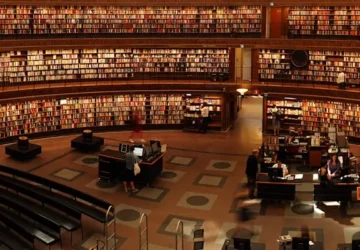
Books Every Student Should Read Before University
University is not just the next step after school. It is a fundamentally different kind of intellectual environment. High school often rewards memorization and acceptance of authority. University, at its best, rewards questioning. It is not just about learning what to think; it is about learning how to think. It is about engaging with complex, […]

How to Take Notes from Books and Lectures
Look at a typical student’s notebook after a lecture. What you will likely see is a dense, frantic wall of text. The student has spent 50 minutes in a desperate sprint, trying to act as a human stenographer, to capture every word the professor said. They leave the lecture exhausted, with cramped hands and a […]
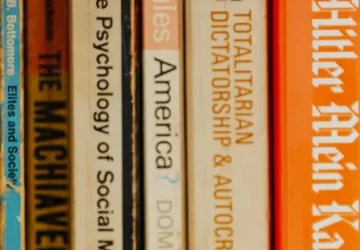
Must-Read Books on Politics and Society
Why does the world feel so chaotic? We watch the daily news and see a storm of seemingly random, disconnected events. A financial market crashes. A new law is passed. A war breaks out. A populist leader rises. A corporation makes a decision that affects millions. We treat these events as “news.” As discrete happenings. […]

Sci-Fi vs Fantasy: Key Differences and What to Read
On the surface, the difference seems simple. One genre has spaceships and aliens. The other has dragons and elves. Science Fiction, we are told, is about the future, and Fantasy is about the past. This is a shallow analysis. And it is wrong. This “aesthetic” definition one of props and settings collapses immediately under any […]
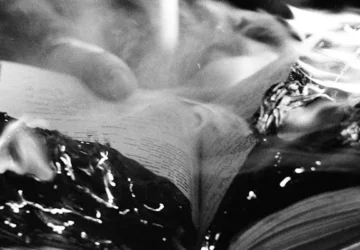
How to Choose a Horror / Gothic Book: A Reader’s Guide
Stop judging a book by its cover. This is true for all literature, but it is an iron law for horror. A bloody axe, a screaming face, a shadowy figure on the cover these things rarely signal a truly terrifying book. More often, they signal a cheap thrill. The real masterpieces of the genre, the […]
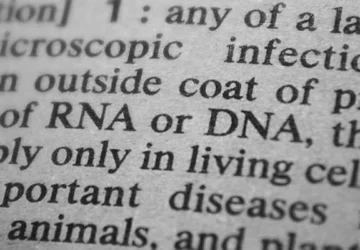
Molecular Biology and the Books That Defined It
What is life? For millennia, this question was the domain of priests, philosophers, and poets. It was a question of “spirit,” of a “vital spark,” of a “ghost in the machine.” Then, in the middle of the 20th century, a new group of thinkers took over. They were physicists, chemists, and biologists, and they approached […]

What Is Close Reading and Why It Matters in Modern Education
We are drowning in words. We read more today than at any other point in human history. We scroll through articles. We skim headlines. We digest hot takes, social media posts, and endless comment threads. Our brains, rewired by the digital age, have become incredibly efficient at one specific skill. Skimming. We have trained ourselves […]
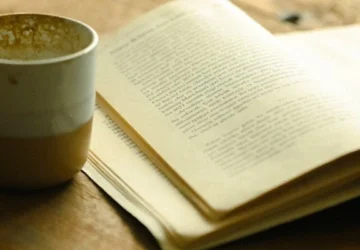
What Is Lateral Reading and How It Helps You Spot Fake News
We have a problem. We are all failing a test we don’t even know we’re taking. The test is the internet. The subject is “truth.” And the people failing the hardest are, paradoxically, the “smartest” ones. For our entire lives, we have been trained in a specific, “academic” way of reading. We were taught to […]